Recent Posts
10 Proven Tips to Make Your Car Tyres Last Longer
The Advantages of Choosing Paintless Dent Repair
Rolls-Royce – Most Common Faults and How to Keep Yours in Perfect Condition
Bentley – Most Common Faults and How to Prevent Them
5 Proven Ways to Remove Tree Sap From Your Car Without Damaging the Paint
Discover the Most Typical Issues with Lexus Cars
What are the Common BMW Issues and How to Fix Them?
Engine Seized or Locked Up? Here’s What You’re Really Dealing With
Is It Safe to Drive with Reduced Engine Power?
What Type of Car Paint Protection Is Best in Abu Dhabi? | Ultimate Guide
How Does Ceramic Coating Protect Your Car’s Paint?
5 Most Common Oil Mistakes That Might Ruin Your Car
When Should You Replace Your Tires? Warning Signs You Shouldn’t Ignore
Common Range Rover Problems and How to Fix Them
How Weather Conditions Affect Your Car Battery and How to Protect It?
Why Brake Fluid is Essential for Your Car’s Safety in Ras Al Khaimah
Mercedes-Benz Engine Repair: Common Issues and How to Fix Them
Top Signs Your Car AC Needs Immediate Repair in Abu Dhabi
The Ultimate Guide to Car AC Repair: Everything You Need to Know
How to Find a Reliable Car Garage Near Me in Abu Dhabi
Why Car Detailing is Essential in Ras Al Khaimah
Windscreen Repair vs. Windscreen Replacement: Which One Do You Need?
Top Signs Your Car Battery Needs to Be Replaced
The Importance of Regular Tire Maintenance: Tips and Tricks
Understanding Brake Issues: When to Repair or Replace Your Brakes
What Can One Expect During a Full Vehicle Inspection?
Top-Rated Car Garages in Ras Al Khaimah: A Comparative Guide
5 Common Engine Problems and How to Fix Them: A Guide for Car Owners
Signs You Need to Take Your Car to the Mechanic
Exploring Unusual Smells in Cars: A Guide to Identifying and Resolving Odors
Decreased Performance and Fuel Efficiency in Cars: What’s Going On?
Bespoke Care for Your Range Rover: Understanding the Importance of Regular Service
Quick Tips for Finding the Best Car Mechanic Near You
Finding Reliable Car Repair and Servicing
Choosing the right car repair workshop: Factors to consider
Expert Car Mechanics Near Me: How to Identify Skill and Experience
The Benefits of Regular Car Servicing for Optimal Performance and Safety
Trusted Car Garages Near Me: How to Avoid Shoddy Repairs
Preventing Costly Repairs with Routine Car Maintenance and Inspections
Navigating the Car Repair Industry: How to Find Honest and Affordable Services
Understanding the Basics of Car Maintenance and Repair for Vehicle Owners
Why regular car servicing is crucial for long term vehicle health?
Maximizing the Lifespan of Your Vehicle with Routine Car Maintenance
The importance of Pre-purchase car inspections: Don’t buy a lemon
Choosing the Right Car Garage Near Me: What to Look for in a Reliable Provider

Lexus vehicles are associated with comfort, quality, and reliability. However, like all vehicles, they can develop problems over time. Even with regular maintenance, a Lexus can face significant issues like an engine locked up or transmission problems. Knowing what to look for and how to address problems early on can help keep a Lexus in good shape and safe to drive for a long time.
Why Even Lexus Can Face Reliability Challenges
Lexus vehicles are based on the thorough engineering of Toyota. However, they are loaded with luxury features and technology, which can occasionally prove to be troublesome. Luxury features do not make a vehicle indestructible. Engines can suffer from overheating, electronics can fail, and poor maintenance can cause issues like a seized engine. Identifying these issues early on will help in reducing expensive fixes.
Most Common Lexus Issues, Symptoms & Fixes
Let’s break down the most frequently reported problems in Lexus cars and what you can do about them.
1. Engine Lock or Seizure
One of the most serious problems is when the engine gets locked up, or a seized engine, meaning the internal components have stopped moving entirely. This isn’t just an inconvenience; it could lead to complete engine failure.
What causes it?
- Overheating
- Lack of oil circulation
- Internal component failure
- Ignoring warning signs like knocking or the oil light
Warning signs:
The classic engine locked up symptoms are
- Loud banging or knocking sounds
- The engine won’t turn over
- Burning smell or smoke
What can you do?
Here are the steps to follow if you are thinking about how to fix a locked up engine.
- First, don’t force-start the car
- Check for oil and coolant levels
- Try rotating the crankshaft manually (only if you know how)
- Ultimately, fixing a locked up engine depends on the cause—it may involve major repairs or even an engine rebuild
And yes, for your question, can an engine be seized with oil in it? Unfortunately, yes. Having oil in the engine does not mean your vehicle is protected; if the oil is contaminated or of low quality, or if it is not circulating, it will result in damage.
2. Melting Dashboard (Aesthetic but Common)
Some models, particularly the older ES and IS series, exhibit sticky, shiny dashboards that appear to crack or melt under direct sunlight. While this does not affect performance, it doesn’t present well and doesn’t feel great to touch.
Solution:
- Lexus has acknowledged this in the past for certain VINs
- Dash replacements or coverings can fix the issue if it’s not under warranty
3. Jerky Transmission
Some Lexus owners notice rough gear shifts, especially at low speeds or when changing from 1st to 2nd gear.
Possible causes:
- Dirty transmission fluid
- Software issues in the transmission control module
- Worn clutches or internal components
How to Fix:
- Change or flush transmission fluid
- Do a software update or module reset
- Full diagnostics if symptoms persist
4. High Oil Consumption
Though Lexus engines are generally efficient, some models (like certain RX or IS variants) may burn oil faster than expected.
How much is too much?
- Burning over 1 quart every 1,500–2,000 km may signal an issue
Common causes:
- Worn piston rings
- PCV valve issues
- Prolonged high-speed driving
Solution:
- Replace faulty components
- Use high-mileage oil if the car is older
- Monitor oil levels frequently
5. A/C Odors or Poor Cooling
You start your Lexus on a hot day, and the air coming out smells moldy—or worse, it barely cools. This is a fairly common issue.
What’s going wrong?
- Mold or bacteria in the vents
- Failing compressor
- Refrigerant leak
Fixes:
- Cabin air filter replacement
- A/C system cleaning
- Recharge or component replacement if cooling is weak
Proactive Maintenance to Prevent Lexus Issues
Most serious Lexus issues don’t appear all at once. They accumulate over time — and you can avoid many of them just by using a few good habits:
- Follow the service schedule: Regular oil changes and inspections, as well as regular topping up of all fluids, help a lot.
- Listen to your car: Any strange sounds, smells, or warning lights are something you shouldn’t ignore.
- Use quality parts and fluids: Choose OEM or equivalent-grade parts. Doing it right the first time is worth the investment.
- Avoid short, frequent trips: These don’t allow the engine to fully warm up and can lead to carbon build-up.
- Check your engine regularly: If your Lexus has symptoms that may indicate an engine lock, a knocking sound, or poor performance.
Prevention is always better than an expensive repair—especially when you’re trying to avoid a full engine lock-up situation.
Keeping Your Lexus Running Strong
Lexus cars are designed for comfort and longevity, but they still require care. From routine wear to severe cases such as the engine locked up, knowing what to watch for makes all the difference.
If you’re facing persistent issues—or just want peace of mind—visit Red Fox Auto Garage in Ras Al Khaimah. Their team is experienced in handling Lexus repairs, from A/C servicing and oil checks to diagnosing whether your engine lock situation can be repaired or needs more serious attention. They know how to spot early engine locked up symptoms and offer quick and reliable service.
FAQs
Why is my Lexus transmission jerking?
Jerking is often caused by dirty transmission fluid, software glitches, or worn internal parts. A fluid change or control unit reset usually helps.
Is dashboard melting normal in Lexus?
It’s a known issue in some older models. Sun exposure can damage the material. Lexus offered repairs under warranty for certain VINs.
How much oil should a Lexus burn?
Ideally, very little—but if your Lexus burns over 1 quart per 2,000 km, it might have worn engine parts or valve issues.
Why does my Lexus A/C smell or not cool well?
Mold in the vents or a failing compressor can cause odors and weak cooling. Cleaning or recharging the A/C system usually solves it.

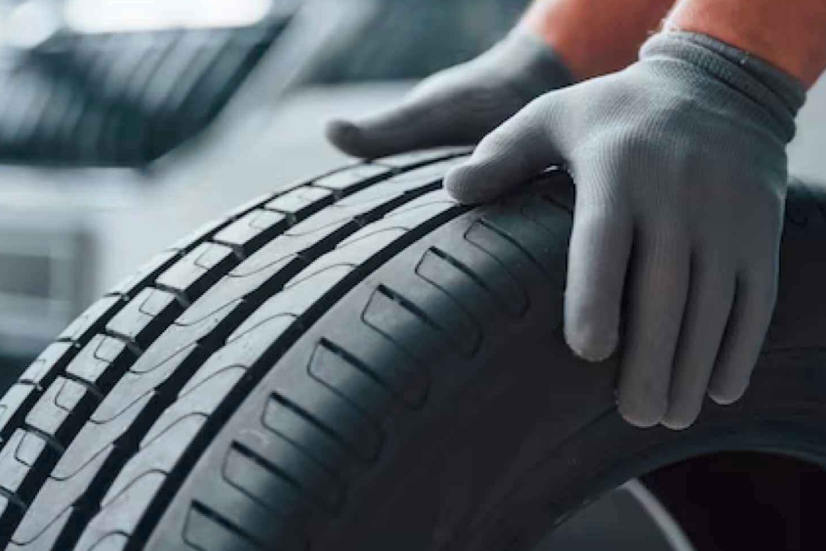 10 Proven Tips to Make Your Car Tyres Last Longer
10 Proven Tips to Make Your Car Tyres Last Longer The Advantages of Choosing Paintless Dent Repair
The Advantages of Choosing Paintless Dent Repair Rolls-Royce – Most Common Faults and How to Keep Yours in Perfect Condition
Rolls-Royce – Most Common Faults and How to Keep Yours in Perfect Condition Bentley – Most Common Faults and How to Prevent Them
Bentley – Most Common Faults and How to Prevent Them 5 Proven Ways to Remove Tree Sap From Your Car Without Damaging the Paint
5 Proven Ways to Remove Tree Sap From Your Car Without Damaging the Paint What are the Common BMW Issues and How to Fix Them?
What are the Common BMW Issues and How to Fix Them?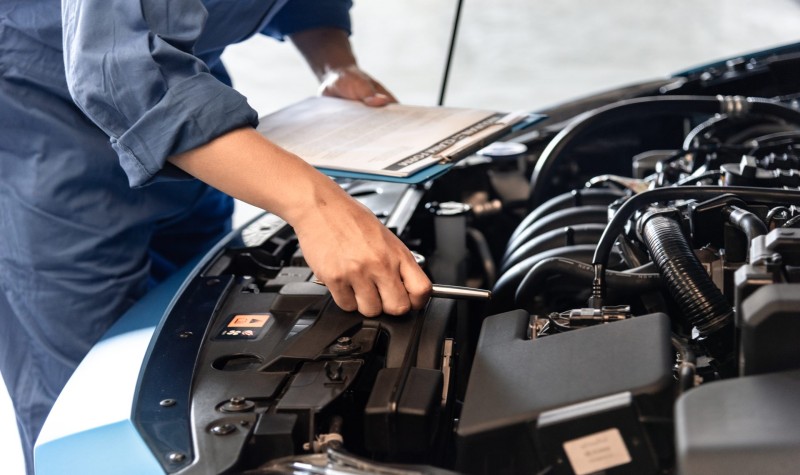 Engine Seized or Locked Up? Here’s What You’re Really Dealing With
Engine Seized or Locked Up? Here’s What You’re Really Dealing With Is It Safe to Drive with Reduced Engine Power?
Is It Safe to Drive with Reduced Engine Power? What Type of Car Paint Protection Is Best in Abu Dhabi? | Ultimate Guide
What Type of Car Paint Protection Is Best in Abu Dhabi? | Ultimate Guide How Does Ceramic Coating Protect Your Car’s Paint?
How Does Ceramic Coating Protect Your Car’s Paint? 5 Most Common Oil Mistakes That Might Ruin Your Car
5 Most Common Oil Mistakes That Might Ruin Your Car When Should You Replace Your Tires? Warning Signs You Shouldn’t Ignore
When Should You Replace Your Tires? Warning Signs You Shouldn’t Ignore Common Range Rover Problems and How to Fix Them
Common Range Rover Problems and How to Fix Them How Weather Conditions Affect Your Car Battery and How to Protect It?
How Weather Conditions Affect Your Car Battery and How to Protect It?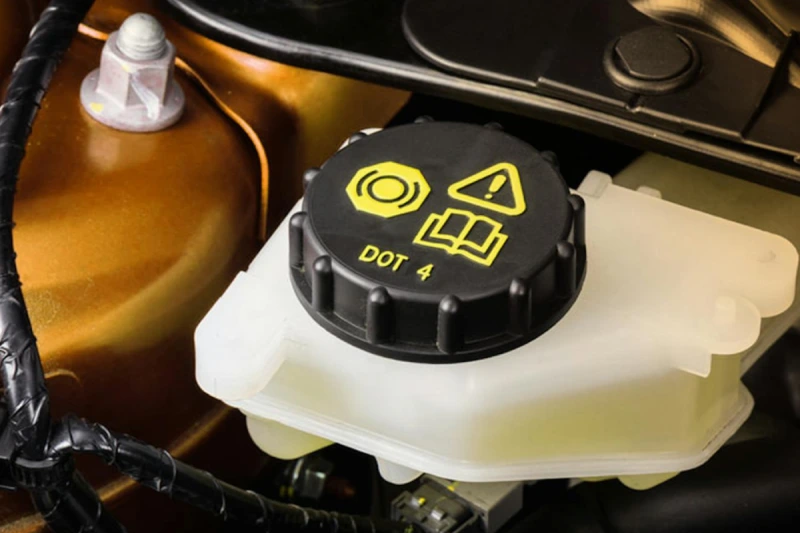 Why Brake Fluid is Essential for Your Car’s Safety in Ras Al Khaimah
Why Brake Fluid is Essential for Your Car’s Safety in Ras Al Khaimah Mercedes-Benz Engine Repair: Common Issues and How to Fix Them
Mercedes-Benz Engine Repair: Common Issues and How to Fix Them Top Signs Your Car AC Needs Immediate Repair in Abu Dhabi
Top Signs Your Car AC Needs Immediate Repair in Abu Dhabi The Ultimate Guide to Car AC Repair: Everything You Need to Know
The Ultimate Guide to Car AC Repair: Everything You Need to Know How to Find a Reliable Car Garage Near Me in Abu Dhabi
How to Find a Reliable Car Garage Near Me in Abu Dhabi Why Car Detailing is Essential in Ras Al Khaimah
Why Car Detailing is Essential in Ras Al Khaimah Windscreen Repair vs. Windscreen Replacement: Which One Do You Need?
Windscreen Repair vs. Windscreen Replacement: Which One Do You Need? Top Signs Your Car Battery Needs to Be Replaced
Top Signs Your Car Battery Needs to Be Replaced The Importance of Regular Tire Maintenance: Tips and Tricks
The Importance of Regular Tire Maintenance: Tips and Tricks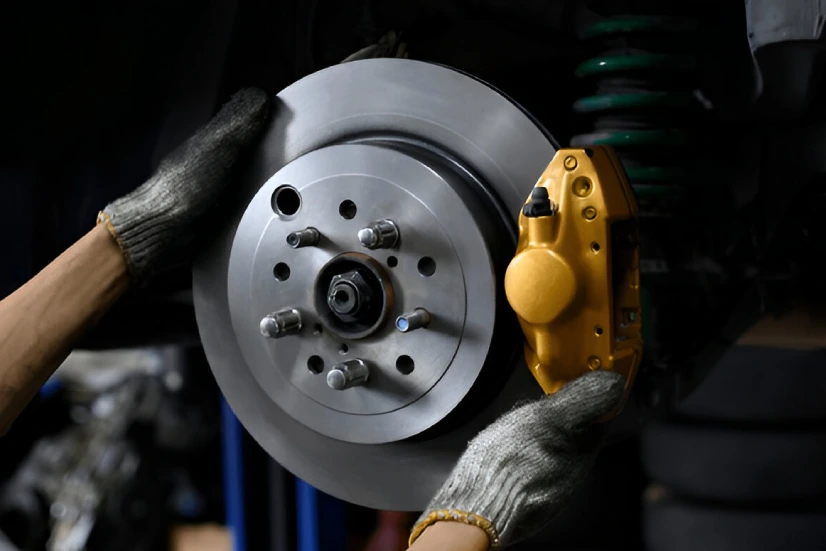 Understanding Brake Issues: When to Repair or Replace Your Brakes
Understanding Brake Issues: When to Repair or Replace Your Brakes What Can One Expect During a Full Vehicle Inspection?
What Can One Expect During a Full Vehicle Inspection? Top-Rated Car Garages in Ras Al Khaimah: A Comparative Guide
Top-Rated Car Garages in Ras Al Khaimah: A Comparative Guide 5 Common Engine Problems and How to Fix Them: A Guide for Car Owners
5 Common Engine Problems and How to Fix Them: A Guide for Car Owners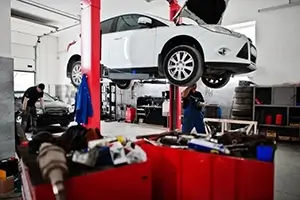 Signs You Need to Take Your Car to the Mechanic
Signs You Need to Take Your Car to the Mechanic Exploring Unusual Smells in Cars: A Guide to Identifying and Resolving Odors
Exploring Unusual Smells in Cars: A Guide to Identifying and Resolving Odors Bespoke Care for Your Range Rover: Understanding the Importance of Regular Service
Bespoke Care for Your Range Rover: Understanding the Importance of Regular Service Quick Tips for Finding the Best Car Mechanic Near You
Quick Tips for Finding the Best Car Mechanic Near You Choosing the right car repair workshop: Factors to consider
Choosing the right car repair workshop: Factors to consider Expert Car Mechanics Near Me: How to Identify Skill and Experience
Expert Car Mechanics Near Me: How to Identify Skill and Experience The Benefits of Regular Car Servicing for Optimal Performance and Safety
The Benefits of Regular Car Servicing for Optimal Performance and Safety Trusted Car Garages Near Me: How to Avoid Shoddy Repairs
Trusted Car Garages Near Me: How to Avoid Shoddy Repairs Preventing Costly Repairs with Routine Car Maintenance and Inspections
Preventing Costly Repairs with Routine Car Maintenance and Inspections Navigating the Car Repair Industry: How to Find Honest and Affordable Services
Navigating the Car Repair Industry: How to Find Honest and Affordable Services Understanding the Basics of Car Maintenance and Repair for Vehicle Owners
Understanding the Basics of Car Maintenance and Repair for Vehicle Owners Why regular car servicing is crucial for long term vehicle health?
Why regular car servicing is crucial for long term vehicle health? Maximizing the Lifespan of Your Vehicle with Routine Car Maintenance
Maximizing the Lifespan of Your Vehicle with Routine Car Maintenance The importance of Pre-purchase car inspections: Don’t buy a lemon
The importance of Pre-purchase car inspections: Don’t buy a lemon